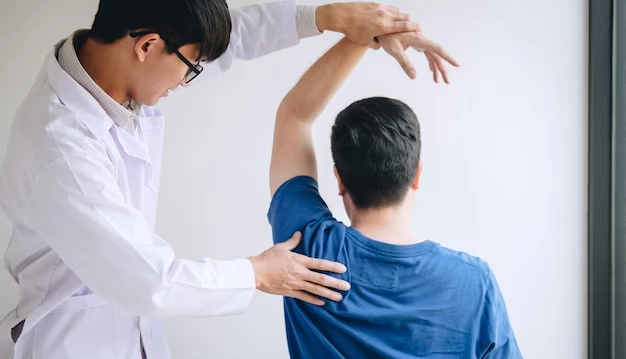Common Causes of Shoulder Pain and Injuries

Shoulder pain is a common complaint, affecting people of all ages and activity levels. Whether you’re an athlete, an active professional, or someone who simply reached for something the wrong way, shoulder injuries can happen suddenly or develop over time. Understanding the common causes of shoulder pain and knowing when to seek urgent orthopaedic care can make a significant difference in your recovery and long-term mobility.
The shoulder is one of the most complex joints in the body, providing a remarkable range of motion. However, this flexibility also makes it susceptible to injuries, instability, and degenerative conditions. While some minor discomfort can be managed with rest and at-home care, other types of pain may indicate a more serious issue that requires prompt medical attention.
Common Causes of Shoulder Pain
Shoulder Impingement Syndrome
Shoulder impingement occurs when the rotator cuff tendons get pinched between the top of the shoulder blade (acromion) and the head of the humerus. This condition is common among swimmers, baseball players, and individuals who frequently lift their arms overhead.
Symptoms include pain when reaching overhead, difficulty sleeping on the affected shoulder, and progressive weakness. If untreated, impingement can lead to a rotator cuff tear. Early intervention with physical therapy or other treatments can prevent further damage.
Rotator Cuff Injuries
The rotator cuff is a group of four muscles and tendons that stabilize the shoulder joint and facilitate movement. Injuries to the rotator cuff can range from mild inflammation to partial or complete tears.
- Tendonitis: Overuse, repetitive movements, or sudden strain can lead to inflammation of the rotator cuff tendons, causing pain and weakness.
- Rotator Cuff Tears: A tear can occur due to aging, overuse, or trauma, such as a fall or lifting something too heavy. A minor tear may cause discomfort and limited movement, while a complete tear can significantly impact function.
Symptoms of rotator cuff injuries include pain when lifting or lowering the arm, weakness, difficulty reaching behind the back, and discomfort that worsens at night. If your pain persists despite rest, worsens over time, or severely limits movement, seeking urgent orthopaedic care is crucial.
Shoulder Dislocation and Instability
A dislocated shoulder occurs when the upper arm bone (humerus) pops out of its socket. This can result from trauma, such as a fall or sports injury, or from recurrent instability due to weak supporting structures.
Symptoms of a dislocated shoulder include severe pain, deformity, swelling, and an inability to move the arm. Repeated dislocations can lead to chronic instability, increasing the risk of further injuries. Prompt medical attention is necessary to properly realign the joint and prevent complications.
Labral Tears
The labrum is a ring of cartilage that surrounds the shoulder socket, helping to stabilize the joint. Labral tears can occur from acute trauma (such as falling on an outstretched arm) or repetitive overhead motions (common in baseball, tennis, and weightlifting).
Symptoms include deep shoulder pain, clicking or catching sensations, weakness, and instability. Labral tears may require physical therapy, and in some cases, surgical intervention to restore stability.
Bursitis
Bursitis occurs when the bursae—fluid-filled sacs that cushion the joint—become inflamed due to repetitive motion, injury, or infection. Shoulder bursitis often develops alongside rotator cuff injuries or impingement.
Common symptoms include localized pain, swelling, and tenderness, particularly when moving the arm. While mild cases can be managed with rest and anti-inflammatory treatments, persistent pain or swelling warrants medical evaluation.
Frozen Shoulder (Adhesive Capsulitis)
Frozen shoulder is a painful condition that leads to stiffness and restricted movement. It typically develops gradually, often following an injury or prolonged immobility. The exact cause isn’t always clear, but it is more common in individuals with diabetes or thyroid disorders.
Frozen shoulder progresses in three stages:
- Freezing Stage: Increasing pain and stiffness limit movement.
- Frozen Stage: The pain may subside slightly, but stiffness remains, making daily tasks difficult.
- Thawing Stage: Mobility slowly improves, but full recovery can take months.
If you experience persistent shoulder stiffness that limits your ability to perform routine activities, seeking urgent orthopaedic evaluation can help determine the best course of treatment.
Arthritis of the Shoulder
Osteoarthritis, rheumatoid arthritis, and post-traumatic arthritis can cause chronic shoulder pain and stiffness. Over time, the cartilage that cushions the joint wears down, leading to pain, swelling, and reduced range of motion.
If arthritis significantly limits daily activities or causes persistent pain, an orthopaedic specialist can discuss treatment options, including medications, injections, or in severe cases, joint replacement surgery.
When to Seek Urgent Orthopaedic Care
Not all shoulder pain requires immediate medical attention, but certain symptoms indicate a more serious problem that should not be ignored:
- Sudden, severe pain after an injury (fall, direct impact, or heavy lifting).
- Visible deformity or swelling in the shoulder joint.
- Inability to move the arm or severe weakness.
- Persistent pain that does not improve with rest or medication.
- Pain accompanied by numbness or tingling in the arm or hand.
- A sensation of the shoulder “giving out” or recurrent dislocations.
Ignoring these warning signs can lead to complications such as permanent stiffness, chronic pain, or long-term loss of function. Seeking urgent orthopaedic care ensures timely diagnosis and treatment, improving the chances of a full recovery.
Treatment and Recovery
Depending on the severity and cause of your shoulder pain, treatment may involve:
- Rest and Activity Modification: Avoiding aggravating movements while allowing the shoulder to heal.
- Physical Therapy: Strengthening and mobility exercises to restore function.
- Medications and Injections: Anti-inflammatory medications or corticosteroid injections to reduce pain and swelling.
- Surgery: In cases of severe injury, such as rotator cuff tears, labral tears, or joint damage, surgical intervention may be necessary to restore stability and movement.
Take Action – Don’t Ignore Shoulder Pain
Shoulder pain can interfere with daily activities, sleep, and overall quality of life. If you’re experiencing persistent pain, limited movement, or symptoms that worsen over time, don’t wait. Seeking urgent orthopaedic care can prevent further damage and get you on the path to recovery.
Our orthopaedic specialists provide expert diagnosis and treatment for all types of shoulder injuries. Whether you need physical therapy, minimally invasive treatments, or advanced surgical options, we’re here to help. Contact Urgent Orthopaedic Care today for an appointment!



